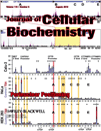
Frontiers in Cell and Developmental Biology
Scope & Guideline
Advancing the frontiers of cellular knowledge.
Introduction
Aims and Scopes
- Cellular Mechanisms and Signaling:
The journal focuses on the molecular and cellular mechanisms that govern cell behavior, including signaling pathways, gene expression regulation, and the role of non-coding RNAs in cellular processes. - Stem Cell Biology and Regeneration:
A significant emphasis is placed on stem cell research, exploring their roles in development, tissue regeneration, and therapeutic applications in various diseases. - Developmental Biology:
Research articles often delve into the intricacies of developmental processes, including embryogenesis, organogenesis, and the impact of environmental factors on development. - Cancer Biology:
The journal addresses the cellular and molecular underpinnings of cancer, focusing on tumor microenvironments, cancer stem cells, and potential therapeutic targets to improve treatment outcomes. - Technological Innovations in Biology:
There is a consistent focus on innovative methodologies, including advanced imaging techniques, single-cell analyses, and computational modeling to enhance our understanding of biological systems. - Microenvironment Interactions:
The interplay between cells and their microenvironments, particularly in the context of disease progression and regenerative medicine, is a core area of interest.
Trending and Emerging
- Single-Cell Transcriptomics and Multi-Omics Approaches:
The rise of single-cell transcriptomics and integrated multi-omics analyses reflects a growing interest in understanding cellular heterogeneity and the complexity of biological systems at an unprecedented resolution. - Extracellular Vesicles and Cell Communication:
Research on extracellular vesicles has gained momentum, highlighting their roles in intercellular communication, immune modulation, and potential therapeutic applications. - Mechanobiology and Cellular Responses to Mechanical Cues:
There is an increasing focus on how mechanical forces influence cell behavior, development, and disease, emphasizing the importance of the physical microenvironment. - Targeted Cancer Therapies and Immunotherapy:
Emerging studies are exploring novel therapeutic strategies, particularly in cancer treatment, focusing on the tumor microenvironment and immune system interactions. - Metabolic Reprogramming in Health and Disease:
Research is increasingly emphasizing the role of metabolism in influencing cell fate, disease progression, and therapeutic responses, particularly in cancer and metabolic disorders. - Epigenetic Regulation and Gene Expression Dynamics:
The exploration of epigenetic mechanisms and their implications in development, aging, and disease is becoming a prominent theme in recent publications.
Declining or Waning
- Basic Cell Biology Studies:
There seems to be a waning interest in purely descriptive studies of cell biology without a clear application or connection to disease mechanisms or therapeutic implications. - Traditional Animal Models:
Research utilizing traditional animal models, such as rodents, for basic cellular studies is less frequent as newer technologies like organoids and in vitro systems gain traction. - Static Imaging Techniques:
Static imaging methodologies are being overshadowed by dynamic imaging technologies that provide real-time insights into cellular processes. - Generalized Stem Cell Applications:
Research focusing solely on stem cells without specific therapeutic applications or mechanistic insights is becoming less prevalent. - Reductionist Approaches:
There is a noticeable decline in reductionist approaches that do not incorporate systems biology perspectives or multi-omics analyses.
Similar Journals

CURRENT OPINION IN CELL BIOLOGY
Decoding the Complexities of Cell BiologyCURRENT OPINION IN CELL BIOLOGY, published by CURRENT BIOLOGY LTD, serves as a vital resource for scholars and professionals in the dynamic field of cell biology. With a solid Q1 ranking and impressive Scopus ranking of #33 out of 285 in the category of Cell Biology, this journal is recognized for its high impact and relevance among its peers, boasting an excellent percentile ranking of 88th. Established in 1989, it provides insightful reviews and perspectives that capture the latest developments and emergent trends in cellular research, making it indispensable for those aiming to deepen their understanding of cellular mechanisms and innovations. While the journal does not offer open access, its carefully curated content ensures that subscribers receive top-tier scholarly discourse. Situated in the heart of the United Kingdom, CURRENT OPINION IN CELL BIOLOGY continues to shape the conversation in a field that is critical to advancements in biochemistry, genetics, and molecular biology.

CELL CYCLE
Connecting Researchers to the Pulse of Cellular Research.CELL CYCLE, an esteemed journal published by Taylor & Francis Inc., stands at the forefront of biological research, focusing on the intricate mechanisms of cell proliferation, molecular biology, and developmental biology. With an ISSN of 1538-4101 and an E-ISSN of 1551-4005, this journal has established its influence in the field with a commendable impact factor reflecting its rigorous peer-review process and high-quality publications. Notably, in 2023, it achieved a Q1 ranking in Medicine (miscellaneous) and a Q2 ranking in both Cell Biology and Developmental Biology, marking its vital role in advancing scientific understanding and innovation. Operating within a converged framework from 2002 to 2024, CELL CYCLE caters to a diverse audience of researchers, professionals, and students eager to explore contemporary findings and emerging trends. The journal's objective is to disseminate groundbreaking research that enhances our understanding of cellular mechanisms, fostering collaboration and innovation. Although not an open-access journal, it remains a premier source for those engaged in cell cycle research, and its contributions have significant implications for fields such as healthcare, biotechnology, and genetics.

TRENDS IN CELL BIOLOGY
Elevating Research Standards in Cell BiologyTRENDS IN CELL BIOLOGY, published by CELL PRESS, is a premier journal in the field of cell biology, recognized for its high-impact contributions since its inception in 1991. As a distinguished member of the Q1 quartile within its category, the journal holds an impressive Scopus ranking of #8 out of 285, placing it in the 97th percentile of the field, which underscores its reputation for excellence. The journal serves as an essential resource for researchers, professionals, and students who are engaged with groundbreaking advancements in biochemistry, genetics, and molecular biology. Although it is not open access, it provides critical insights into the latest trends, reviews, and advancements in cell biology, making it a crucial tool for anyone committed to understanding the complexities of cellular systems. With a focus on innovative and transformative research, TRENDS IN CELL BIOLOGY continues to shape the discourse in cell biology and enhance the scientific community's knowledge.

SEMINARS IN CELL & DEVELOPMENTAL BIOLOGY
Catalyzing Knowledge in Cell Biology and DevelopmentSEMINARS IN CELL & DEVELOPMENTAL BIOLOGY is a premier journal published by Academic Press Ltd - Elsevier Science Ltd, focusing on the vital domains of cell and developmental biology. With an impact factor that reflects its rigorous contributions to the field, this journal embodies the highest standards of academic excellence, currently ranking in the Q1 quartile for both Cell Biology and Developmental Biology categories as of 2023. Researchers and practitioners will appreciate its robust Scopus ranking, placing it within the top tiers of developmental biology and cell biology, with percentile ranks of 94th and 90th respectively, showcasing the journal's influential presence in the scientific community. The journal aims to disseminate comprehensive reviews, cutting-edge research articles, and significant advances in the understanding of cellular mechanisms and developmental processes, thereby catering to a diverse audience that includes researchers, scholars, and students dedicated to the life sciences. Given its commitment to open access, SEMINARS IN CELL & DEVELOPMENTAL BIOLOGY promotes widespread dissemination of knowledge, enhancing collaborative research efforts and driving innovation across biological disciplines.

JOURNAL OF CELLULAR BIOCHEMISTRY
Connecting Researchers Through Cutting-Edge Biochemical StudiesJournal of Cellular Biochemistry is a premier academic journal dedicated to advancing the field of biochemistry and cellular biology. Published by Wiley, this influential journal has a significant impact factor that underscores its relevance and authority within the scientific community. With its ISSN 0730-2312 and E-ISSN 1097-4644, the journal has been on the frontier of research since its inception in 1982, and is expected to continue publishing cutting-edge studies through 2024. As evidenced by its ranking in the 2023 Scopus Quartiles, it holds a rank of Q2 in Biochemistry and Q3 in both Cell and Molecular Biology, placing it among the top tiers of scientific journals in these disciplines. The Journal of Cellular Biochemistry serves as a vital resource for researchers, professionals, and students alike, providing a platform for the dissemination of innovative ideas and findings that shape our understanding of cellular processes and biochemical pathways. Though it does not currently offer Open Access options, its robust peer-review process ensures that each publication meets the highest academic standards, thus solidifying its esteemed position in the landscape of biochemical research.

Molecular Cell
Connecting Molecular Genetics with Cellular Functionality.Molecular Cell, published by Cell Press, is a leading journal in the fields of cell biology and molecular biology. Established in 1997, this prestigious journal boasts a significant impact within the scientific community, evidenced by its impressive 2023 Scopus rankings, placing it in the top 2% of its field (Rank #10/410 in Molecular Biology, Rank #12/285 in Cell Biology). With a focus on cutting-edge research that bridges the gap between molecular genetics and cellular function, Molecular Cell serves as an essential platform for the dissemination of vital findings and innovative methodologies. Although it follows a traditional publishing model without Open Access options, its rigorous peer-review process and high standards ensure that articles published within these pages are of the utmost quality, making it an invaluable resource for researchers, professionals, and students alike seeking to stay at the forefront of scientific discovery. The journal's address is 50 Hampshire St, Floor 5, Cambridge, MA 02139, United States, reinforcing its commitment to fostering scientific excellence and collaboration.

GENES & DEVELOPMENT
Exploring the Frontiers of Gene Function and DevelopmentGENES & DEVELOPMENT, published by COLD SPRING HARBOR LAB PRESS, stands as a premier journal in the fields of Developmental Biology and Genetics, boasting a remarkable impact factor that reflects its prestigious position in the academic community—ranking Q1 in both disciplines as of 2023. Since its inception in 1987, this journal has been at the forefront of disseminating cutting-edge research, effectively bridging the gap between laboratory breakthroughs and their applications in health and disease. Researchers and professionals rely on GENES & DEVELOPMENT for its rigorous peer-review process and its commitment to promoting innovative studies that unravel the complexities of gene functions and developmental processes. With Scopus rankings placing it in the top percentile among its peers, this journal serves as a vital resource for students and established scientists alike, aspiring to expand their knowledge and contribute to the ever-evolving landscape of genetic and developmental research.

DIFFERENTIATION
Advancing the Frontiers of Cellular UnderstandingDIFFERENTIATION is a respected peer-reviewed journal published by Elsevier Science Ltd, dedicated to advancing knowledge in the fields of Cancer Research, Cell Biology, Developmental Biology, and Molecular Biology. With an established history since 1973, the journal continuously explores the intricacies of cellular and molecular processes that govern differentiation in biological systems, thus playing a pivotal role in shaping contemporary research directions. Currently indexed in the Q3 quartile across multiple relevant categories, it provides a crucial platform for researchers to disseminate their findings and engage with the scientific community. DIFFERENTIATION does not offer open access, but it remains a valuable resource for academics seeking to enhance their understanding of the fundamental mechanisms that underpin life sciences. By fostering a rigorous dialogue among scientists, it contributes significantly to the ever-evolving landscape of biochemistry and genetics.

DNA AND CELL BIOLOGY
Advancing Knowledge in Cell and Genetic SciencesDNA AND CELL BIOLOGY, published by Mary Ann Liebert, Inc, is a distinguished journal in the realms of cell biology, genetics, and molecular biology, holding a notable position in its Q3 and Q2 quartile rankings across multiple academic categories as of 2023. With an ISSN of 1044-5498 and an E-ISSN of 1557-7430, this journal has been a pivotal platform for the dissemination of cutting-edge research since its inception in 1990, extending its coverage through 2024. Situated in the United States, the journal offers high-quality peer-reviewed articles, exploring significant advancements in biological sciences while fostering interdisciplinary collaborations within the research community. Though it currently does not offer open access, subscribed institutions and individual readers benefit from its rich repository of knowledge. The journal's rigorous standards and impactful content make it an essential resource for researchers, professionals, and students alike, aiming to stay at the forefront of discoveries influencing DNA and cellular dynamics.

DEVELOPMENTAL CELL
Advancing Knowledge in Developmental BiologyDEVELOPMENTAL CELL, published by CELL PRESS, stands as a premier journal in the fields of Biochemistry, Genetics and Molecular Biology, Cell Biology, and Developmental Biology. With a significant influence evidenced by its Q1 rankings across several categories in 2023 and a remarkable Scopus ranking placing it at the 98th percentile for Developmental Biology, this journal is pivotal for researchers and academics aiming to advance their understanding of cellular processes. Covering a broad range of topics from molecular mechanisms to cellular developmental pathways, DEVELOPMENTAL CELL publishes cutting-edge research articles that contribute to the dynamic landscape of cell biology and related disciplines. Although it does not currently offer open access, the journal is accessible through institutional subscriptions, reinforcing its commitment to disseminating high-quality scientific knowledge produced by leading experts in the field. Based in the United States, DEVELOPMENTAL CELL continues to push the boundaries of discovery and innovation in life sciences, making it an essential resource for professionals, researchers, and students alike in the quest for foundational biological insights.